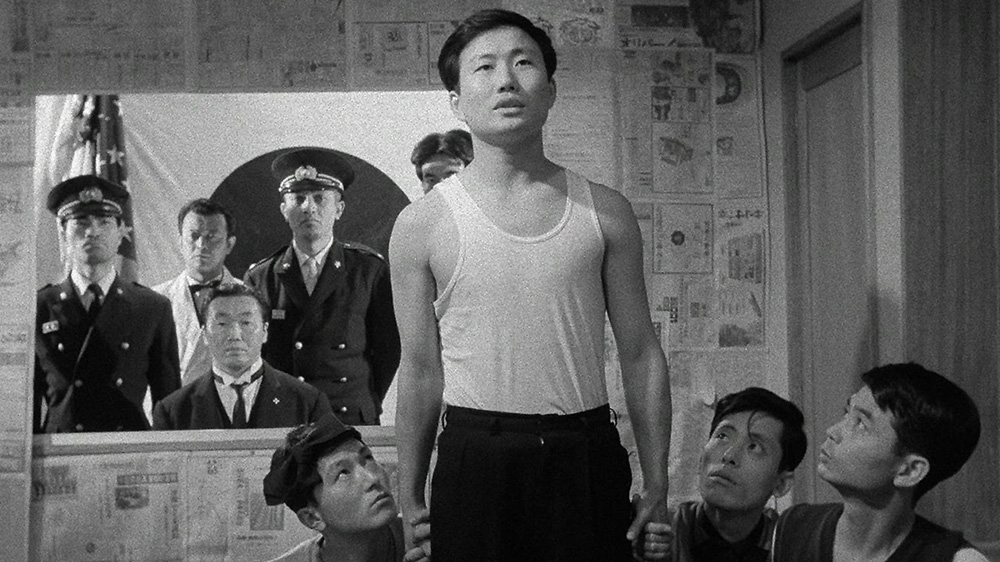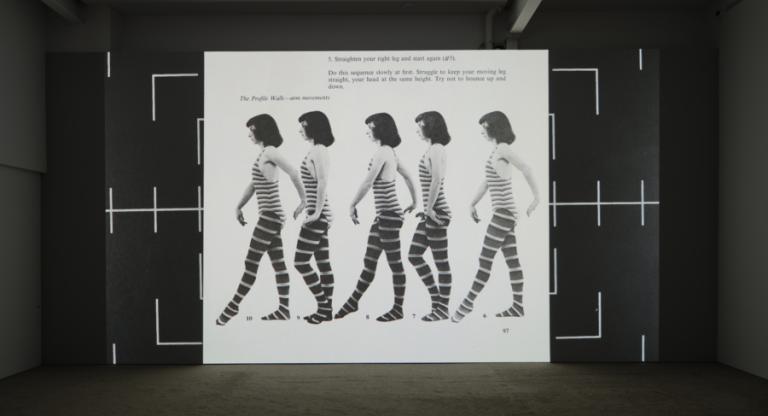Nagisa Oshima’s Death By Hanging (1968) resembles 12 Angry Men in the hands of Buñuel or Pirandello. Beyond interrogating the prejudices of a group of jurors and the society they represent, Oshima crafts a dense yet nimble indictment of the state, its violence, the actors that carry it out, and the very nature of guilt within a system that is predicated on racism, dehumanization, and murder.
The Brechtian chamber piece, by turns hilarious and horrifying, focuses on a litany of complications that arise when the execution of a young Korean Japanese man does not go to plan. Beginning in an essayistic mode, the film gives us a tour of the death house. As the camera floats through the space, the narrator coolly intones the protocol of state-sanctioned murder and, in Robbe-Grillet fashion, offers a collection of small, haunting details: the salmon-colored walls and the maroon carpet beneath the victim’s feet—the last piece of earth they will ever touch. But when the trap door opens and the man, R, is hanged, he does not die as expected.
When R is revived he does not know who or where he is. The bumbling state officials begin a series of absurd attempts to jog his memory, explaining his guilt and his punishment. They attempt to recreate the crime, providing their own salacious and fantastical psychological dimension, and in the process, one of them commits another murder. Eventually R’s sister appears and seems to be the only person who can confirm his identity; the problem is he has no sister. As the questions and concepts that necessitate explanation grow wider in scope, the situation becomes increasingly desperate and silly, with the officials revealing their own perverse understanding of “the law” and deeply ingrained, often racist, beliefs and personal feelings of guilt along the way.
Rather than simply playing semiotic games, Oshima continuously expands and compounds the absurdity and philosophical inquiry of his film. Each of the twists and turns points toward an empty space at the center of capital punishment and, beyond this, the vacancy of state power and subjection in general. For Oshima, this socially contingent project of law and punishment is rendered counterfeit by its grounding in racist exploitation and domination, particularly in Japan’s treatment of Koreans during and after the war. In Death By Hanging, there is no transcendent moral rightness to the state’s violence; the state lives in the subjectivity and complicity of those who serve it.
Death by Hanging screens tonight, July 15, and on July 22 at Anthology Film Archives as part of their Nagisa Oshima retrospective.



